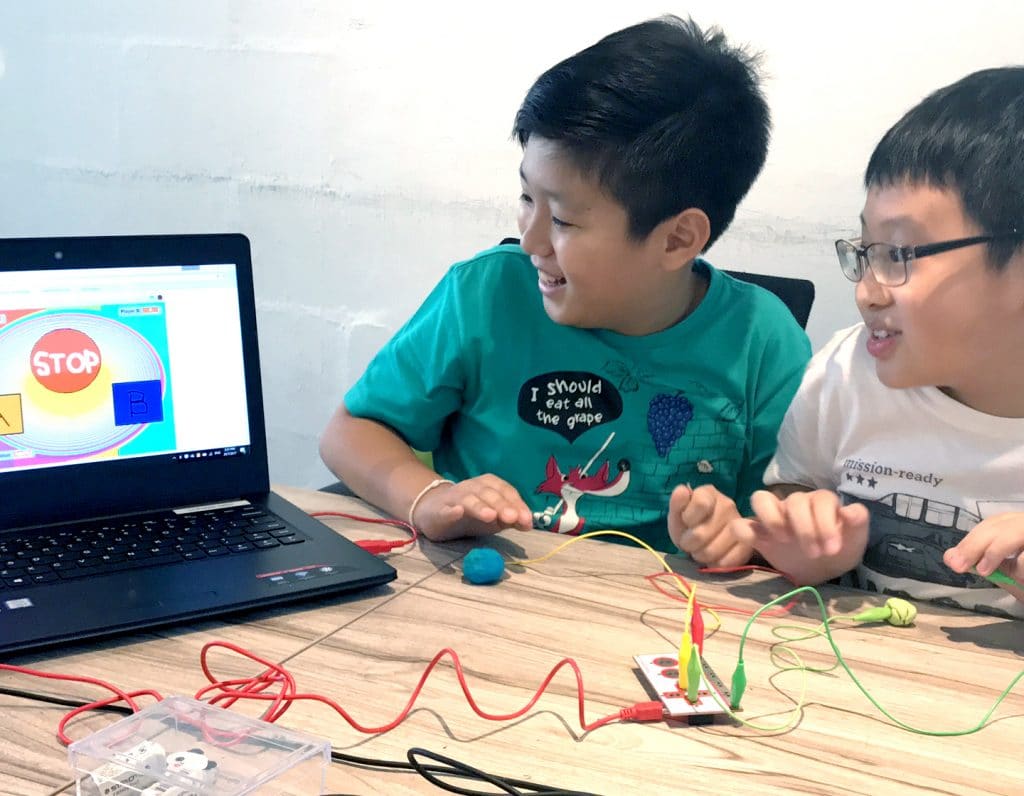
Are your kids’ coding classes structured to really grab their attention? Is their coding curriculum fun, yet rigorous and most importantly age-appropriate?
It is at Coding Lab! Coding Lab offers a multi-award winning, MIT Inspired Curriculum for their sought-after coding classes. This challenging, yet age-appropriate program is brought to life by expert teachers who cater their teaching style in an engaging way to preschoolers through to teens. Read on for how Coding Lab really sets the standard of coding classes.

Coding Lab was founded by Yong Ning Foo, an ex-Silicon Valley MIT Alumnus with a Masters in Computational Engineering – the kind of guy to whom programming is like a second language! When Yong Ning set up Coding Lab he recruited highly qualified coding teachers from renowned educational institutions who excel in the delivery of the curriculum, whether it be to preschoolers, teens or NUS undergraduates. The teaching goal is always to spark kids’ interest in technology to open exciting doors for students later in life.
So what sets Coding Lab apart?
Founder Yong Ning is a parent himself so he gets kids, and has designed everything at Coding Lab from the quality teachers to the award winning MIT curriculum to the room set up and materials with kids and their different ages in mind.
Coding Lab is the only coding school to be present in three countries globally (Japan, Australia, and Singapore) and benefits from a global curriculum team – that’s lots of coding brains all pooling into one school! In fact their skills are sought after by corporate clients and schools alike from Cisco, to National Library Board, Victoria Junior College, Raffles Girls’ Secondary, and Etonhouse to name just a few.

Age-specific Teaching styles at Coding Lab:
- Ages 4-6: Fun! Mix of off & on screen
Teachers kickstart your child’s coding journey with a mixture of off-screen, kinaesthetic and craft activities in the Junior Coders’ Program. It’s all about making it fun for this age! Kids program their favourite stories and watch them come to life, based on popular children’s literature such as Eric Carle’s The Very Hungry Caterpillar. Kids then learn how to train a robot friend to retrieve objects and say messages. - Ages 7-9: Project-based learning
Teachers ignite childrens’ passion for coding by engaging them to be thinkers and creators through hands-on and project-based learning. Kiddos start off by creating games and animations, way cool! - Ages 10-12: Building on key academic concepts
Older kids learn using a structured curriculum roadmap progression that trains both depth and breadth with the application of key concepts learned at school (Math/Science) to App Creation and Python (real-world programming). The Young Computer Scientists program takes students through 12 different research areas with exciting themes such as Artificial Intelligence, Machine Learning, and Tinkering with the Micro:Bit. - Ages 13-18: Real-world skills
Teachers aim to equip teens with real-world skills such as computational and algorithmic thinking. Teens will be challenged to solve real-world mathematical simulations with code, and create programs that make a difference to the community. They will also be invited to Coding Masterclasses such as this one on Data Analytics: Social media Insights or take the path leading to specialisedOlympiad training that will build a solid foundation for their future.
-

Teens who Code: Python Class (Ages 13-18) in session at Coding Lab. Boardroom-style set up, with custom-made swivel chairs for the right posture and interactive projectors. (Image: Coding Lab) Testimonials:
Mama: “My son went to Coding Lab’s two day holiday camp. The campus is next to a little play area outside where the kids took regular breaks to rest their eyes and jump about, which I thought was a great way to break up a day of concentrating at a screen. My son hadn’t done any coding before but he launched himself straight in and loved it — I was a little nervous it would be too much for him but the teachers pitched the work just right and he now fancies himself a game maker!”
Read more: Tried and Tested: Coding Fun for Little Ones with Coding Lab
Kid: “I liked that you could make your own computer game and choose the theme of the game and characters. I made a catch the bat game. It was quite difficult but really fun, and I was proud I got my certificate at the end of it!
– Beate, Editor at Sassy Mama Singapore, and her 6 year-old sonTeen: “Coding is really a language, and just like someone learning a second spoken language, I’m still learning how to express myself and get my ideas down in clean (and readable!) code. Coding also opens your mind to a different way of thinking – I find myself applying the logic and analytical skills I’ve picked up in coding both in school and in everyday life.”
– Sarah Go, 17, Hwa Chong International (Recipient of an Honourable Mention in the 2017 National Olympiad in Computing, just 6 months after picking up programming)Coding Lab offers year-end Coding Holiday Camps as well as ongoing weekly classes all year round. Keen for your kids to get involved in?
 Sassy Mamas can get 5% off (all year round) with code SASSY5, just make sure to register at for the age-appropriate course: Ages 4-6/Ages 7-9/ Ages 10-12/Ages 13-18! Sign up here for Code Plus Special Programs (like Coding Masterclasses or Themed Parent-Child workshops!)!
Sassy Mamas can get 5% off (all year round) with code SASSY5, just make sure to register at for the age-appropriate course: Ages 4-6/Ages 7-9/ Ages 10-12/Ages 13-18! Sign up here for Code Plus Special Programs (like Coding Masterclasses or Themed Parent-Child workshops!)!Coding Lab, Tel: (+65) 6528 2282, Codinglab.com.sg
Locations:
East Coast: Parkway Parade, 80 Marine Parade Road #10-06, Parkway Parade (Office Tower), Singapore 449269
Upper Bukit Timah: 264 Upper Bukit Timah Road #03-06, Singapore 588208Brought to you in partnership with Coding Lab






 View All
View All




 View All
View All









 View All
View All



